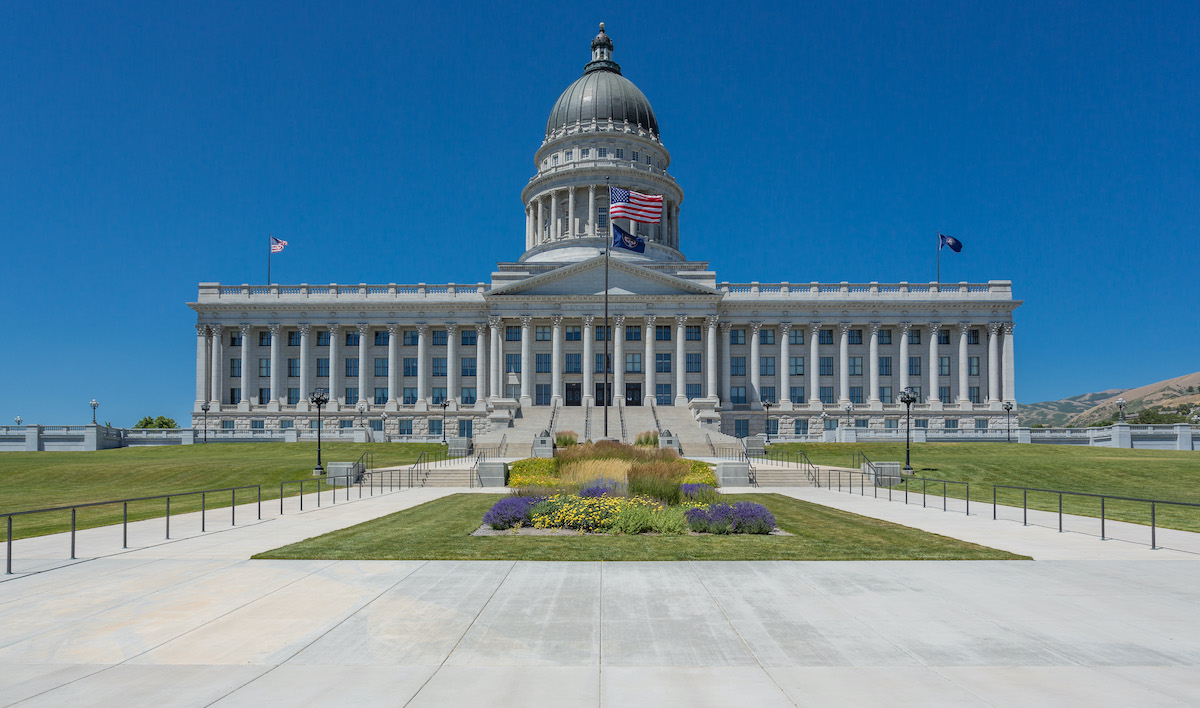Politics & Government
Lehi legislators discuss 2021 session success, challenges
Published
5 years agoon

It was another busy session at the Utah state capitol this year. Lehi legislators successfully ran several bills, including a high-profile bill that restructures regulatory mandates to encourage business innovation.
Rep. Cory Maloy (LD 6) sponsored HB 217, a regulatory relief bill that he said does two things. First, it looks at regulations affecting businesses, especially those working on innovating new products. Second, it promotes innovation by easing the regulatory burden on those companies in that development process.
It’s the first time a state has passed this type of bill – called a “Sandbox Bill” – that applies to all state businesses. Other states have passed similar bills affecting individual industries, but not all industries.
Maloy said while it applies to all businesses, he expects it to be beneficial for small businesses and entrepreneurs.
It waives several regulations for businesses that meet the criteria for up to two years. It’s called a sandbox bill because it allows these companies to take their business and “play in the sandbox” as they work on innovative products.
This bill allows them to invest time and money in the new ideas without carrying the full regulatory burden and its accompanying time and funding.
It doesn’t waive consumer protection or fraud regulations.
Companies interested in the program will apply through the Governor’s Office of Economic Development (GOED). The bill creates a regulatory relief office within GOED.
Maloy said Libertas Institute brought the idea to legislators, and he was happy to sponsor it. The bill faced no opposition, passing both houses unanimously.
Maloy also ran and passed HB 143, which prohibits the Driver License Division from suspending an individual’s driver’s license for not paying certain fines. It also prohibits a court from ordering a driver’s license suspension or revocation under certain circumstances.
Some people have found themselves between a rock and a hard place when they have a fine they’re struggling to pay, and then their driver’s license is revoked, so they can’t get to work. This bill helps relieve that situation.
Two other bills run by Maloy dealt with firearms. Maloy is known for sponsoring bills dealing with the second amendment. The first, HB 200, which passed, consisted of a few technical changes to a “Safe Harbor” bill he ran a few years ago. The other, HB 76, would establish the legislature as the preemptive body for firearm regulation. It passed the House quickly but stalled in the Senate. Maloy plans to bring it back next year.
Rep. Jefferson Moss (LD 2) co-sponsored SB 153, a tax relief bill that restores the dependent exemption up to $1750.
Moss ran HJR 6, which focuses on transparency for legislative RFA’s. An RFA is a “request for appropriation.”
Moss has focused on increased transparency and efficiency in the legislature throughout his service. His efforts last year led to a new feature on the legislature’s website, which allows people to see every RFA submitted by each legislator. The intent to enable the public to know who is requesting money for what.
HJR 6 is another piece focused on efficiency, Moss said. The bill adds three positions to the legislative staff – one auditor and two legislative fiscal analysts.
Moss said that by adding positions, he is spending money to save money. The three new legislative employees will spend all their time examining the use of funds through targeted efficiency evaluations. Moss wants to systematize follow-up on legislation.
“We go out, and we adopt all these bills every year. We create new programs. And we’ll talk about what we’re hoping to accomplish. When do we ever go back and say, ‘Are we accomplishing what we said we were?”
With HJR 6, Moss hopes the system will be in place to do that.
In the same vein, Moss also ran HJR 11. This bill requires the legislature to consider tax cuts along with spending proposals when discussing appropriations.
Another successful bill by Moss was HB 381. The “Grow Your Own Teacher and School Counselor” bill. It assists people who wish to become teachers from a “non-traditional background.” It establishes a $9.8 million grant program to award scholarships to paraprofessionals, school counselor assistants and school counselor interns to become a licensed teacher or counselor.
The bill’s idea came from what Moss observed at Harvest Elementary, where his wife works as a teacher. The principal there has long cultivated teachers among the paraprofessionals and assistants with great success.
Moss said it would be especially helpful in rural areas, where it may be challenging recruiting teachers from outside the area.
Senator Jake Anderegg (SD 13) ran SB 159, which addresses law enforcement data management.
“70% of law enforcement agencies (in Utah) don’t have coordinated data sharing and collection processes in place,” Anderegg said. They have different data management systems and even different coding.
The current system makes it very difficult to assess information about law enforcement in the state accurately. The bill establishes a working group that will bring law enforcement partners together this Spring to figure out how to implement a coordinated reporting system for law enforcement data.
Another bill Anderegg ran was SB 164, which deals with “affordable housing,” including a short-term mediation program for renters facing eviction and a grant program that subsidizes development costs in rural Utah.
The bill also designates $50 million from the Utah Preservation Fund, which will be matched ten to one by large corporations such as Ivory Homes, Zions Bank, Intermountain Healthcare and the Millers. The money is designated for community reinvestment.
Anderegg also ran SB 7, the base budget bill for Utah’s social services, including the Health and Human Services (HHS) and Workforce Services departments. As the Chair of the Social Services Appropriations Subcommittee, he worked with colleagues to reallocate about $40 million of the $7.1 billion budget from programs he said are underperforming to higher priorities.
Social services consume 50% of the state budget. With that in mind, Anderegg ran SB 212, which would have created a task force to review state and local health departments. The bill received a favorable recommendation from the Senate HHS Committee, but the governor asked him to hold the bill, so it didn’t advance.
“Social services haven’t gone through a top-to-bottom review since the last 1960s,” Anderegg said. He plans to bring the bill back after working with interested parties and said, “We are going to clean house.”
Rep. Kay Christofferson (LD 56), usually active on the legislation front, is fortunate to be home from the hospital and recovering after a severe case of COVID-19.
He got sick the week before the session started and attended the first week or so via teleconference. Still, his condition worsened, and he was admitted to the ICU at Intermountain Medical Center in Murray on January 27. After nine days in the ICU, he spent another four days under standard care at the hospital.
When Christofferson came home, he participated in the session again via technology. However, he said he missed the discussions that take place person-to-person when legislators are in the capitol building together.
He is still toting an oxygen tank with him, but he was able to attend half of the last day of the session and is steadily improving.
“It was a pretty humbling experience,” he said, noting there were a handful of days when he wondered whether his time was up.
Even with those challenges, he successfully ran HB 137, which changes the weight limit ratings for large vehicles. This bill will impact large families who drive high-capacity vans.
Commercial vehicles will now be defined as those weighing over 13,000 pounds or 26,000 pounds if operated by someone over 18 years old.
Christofferson also co-sponsored a couple of bills – one dealing with transportation (SB 113) and one dealing with procurement (SB 188).

You may like
-


Lehi City to host its first-ever community Chanukah Celebration
-


Lehi Real Estate Snapshot: November 2025
-


BREAKING NEWS: Paige Albrecht announces departure from Lehi City Council, expresses gratitude
-


Experience the charm of “She Loves Me,” presented by the Lehi Arts Council
-


Volunteer AF Cheer director goes above and beyond for local youth
-


Five Lehi gridders ink college letters
-


Falcon football standouts accept college offers
-


Live Nativity Returns to Lehi with Immersive Experience and Humanitarian Focus
-


Families, volunteers bring holiday magic to Utah’s 55th Festival of Trees
-


Pioneer Crossing Flex Lane construction update, winter weather does not hinder project

